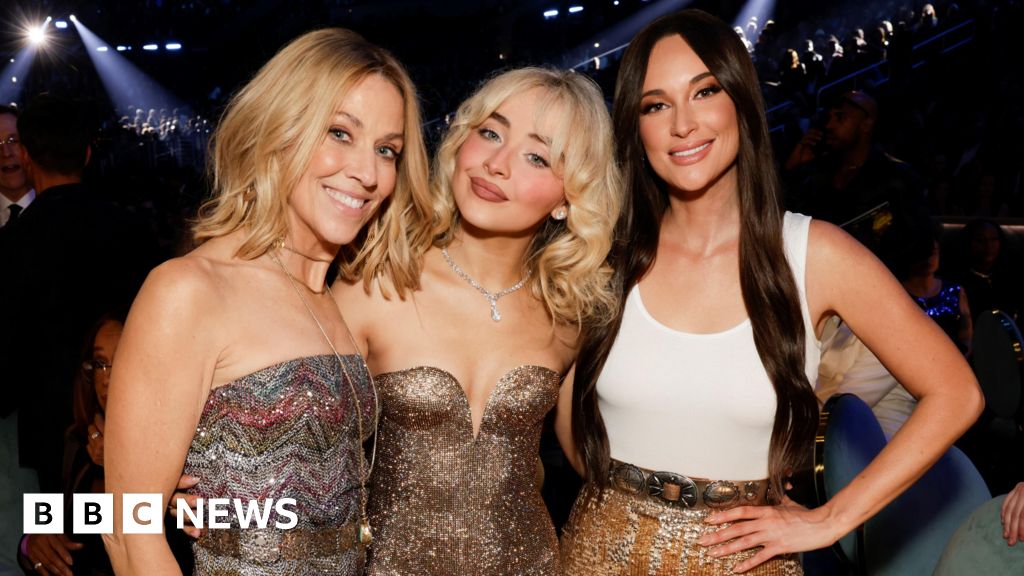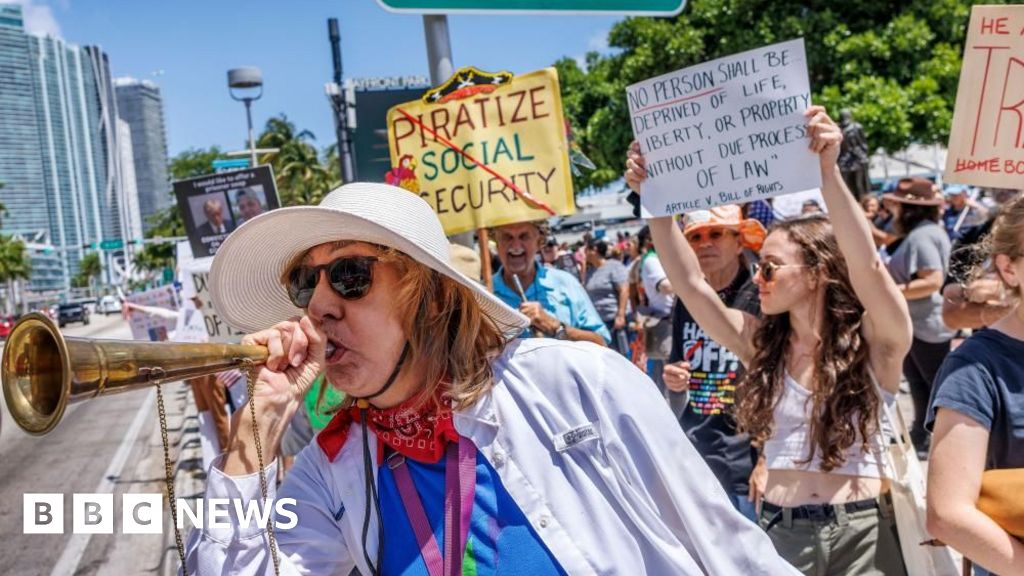ARTICLE AD BOX
Image source, Reuters
Image caption,Mr Putin and Mr Biden met at a 2021 summit in this file photo
US President Joe Biden has labelled Russian leader Vladimir Putin a "war criminal" in a move likely to escalate diplomatic tensions even further.
Mr Biden delivered the remark off-the-cuff in response to a reporter's question at the White House.
It is the first time he has used such language to condemn President Putin, and the White House later said he was "speaking from his heart".
The Kremlin, however, said it was "unforgiveable rhetoric".
"We believe such rhetoric to be unacceptable and unforgivable on the part of the head of a state, whose bombs have killed hundreds of thousands of people around the world," spokesman Dmitry Peskov told Russian state news agency Tass.
The exchange in Washington happened Wednesday when a reporter asked the US president: "Mr President, after everything we have seen, are you ready to call Putin a war criminal?"
The President replied "no" before being challenged, and then changed his reply: "Did you ask me whether I would tell ....? Oh, I think he is a war criminal."
White House Press Secretary Jen Psaki later said the president had been speaking from his heart after seeing "barbaric" images of the violence in Ukraine, rather than making any official declaration.
She noted that there was a separate legal process, run by the State Department, to determine war crimes - and that was ongoing separately.
The president's official Twitter account posted: "Putin is inflicting appalling devastation and horror on Ukraine — bombing apartment buildings and maternity wards... these are atrocities. It is an outrage to the world."
Ukrainian President Volodymyr Zelensky earlier gave a speech by video link to a join Congress, receiving a standing ovation. Hours later, Mr Biden approved additional weapons aid for Ukraine, bringing the total US contribution to $1bn (£760m).
One by one, diplomatic bridges between the United States and Russia are being set ablaze.
Mr Biden's statement was an odd one, albeit not out of keeping for a politician who has a history of making monumental policy shifts in seemingly off-the-cuff remarks (see, for instance, his comments on gay marriage in 2012).
After initially telling a reporter he did not think Mr Putin was a criminal, he came back and reversed himself. If there had been an internal debate at the White House over how to handle the growing calls in Congress and the press to condemn Mr Putin in this way, the president settled it in an aside, not a set-piece speech.
This, of course, will make it harder for Mr Biden and his administration to work with the Russians going forward. Every concession or negotiated agreement, on whatever topic, will invite the rejoinder: How can you associate with a criminal?
Perhaps Mr Biden, in his comments, was simply acknowledging the new reality - that the world's political order has irrevocably shifted, and there's no going back to the way things were.

 3 years ago
54
3 years ago
54








 English (US) ·
English (US) ·